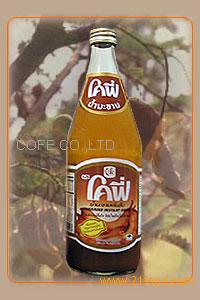


The aromas and flavors they do feature tend to be funky: earthy, spicy, wild, mossy, mushroomy. Instead of being known for their notes, Sumatran coffees are typically characterized by their full bodies and low acidity. The modified natural processing method and extended drying time produce coffees with muted flavors and aromas. Most of Sumatran coffee’s unique characteristics stem from wet hulling. Wet Hulling Produces Unique Characteristics Because wet hulling involves three stages of drying, the coffee’s moisture remains well above 11 percent for a long time - often until it’s finally exported. In most processing methods, coffee beans are dried until their moisture levels are between 9 and 11 percent when they leave the processing facility. Part of the reason the beans aren’t dried by farmers is because Sumatra has such a wet climate, which is great for growing coffee trees but poses processing challenges. Wet Hulling Leaves Coffee More Moist for Longer The beans are shipped to a port city for exportation, and dried a third time at the port city.The coffee is shipped to a warehouse, where the parchment is removed, and the beans are dried more.The beans, in their parchment, are partially dried in the farmer’s yard.The following morning, farmers wash off the mucilage (remaining fruit) by hand.The skinned beans are placed in woven bags and left to ferment overnight.Farmers remove the skin of the coffee cherry immediately after picking using homemade machines.Wet hulling involves the following steps: Even though coffees processed this way are sometimes called natural or dry processed, wet hulling is distinct from natural processing methods used in other parts of the world, such as Ethiopia. Wet hulling, or Giling Bashan, is the most common processing method used in Sumatra. While a few coffee drinks favor the region’s earthy tones, low acidity and full body, it’s often disregarded by most coffee connoisseurs today as an inferior product. Because of the unique processing method, wet hulling, that’s used by most farmers, Sumatran coffees tend to have distinct characteristics. Sumatra is an island in Southeast Asia that seems to be ideally suited for growing arabica coffee. Sumatran coffees showcase how several factors influence a coffee’s taste.


 0 kommentar(er)
0 kommentar(er)
